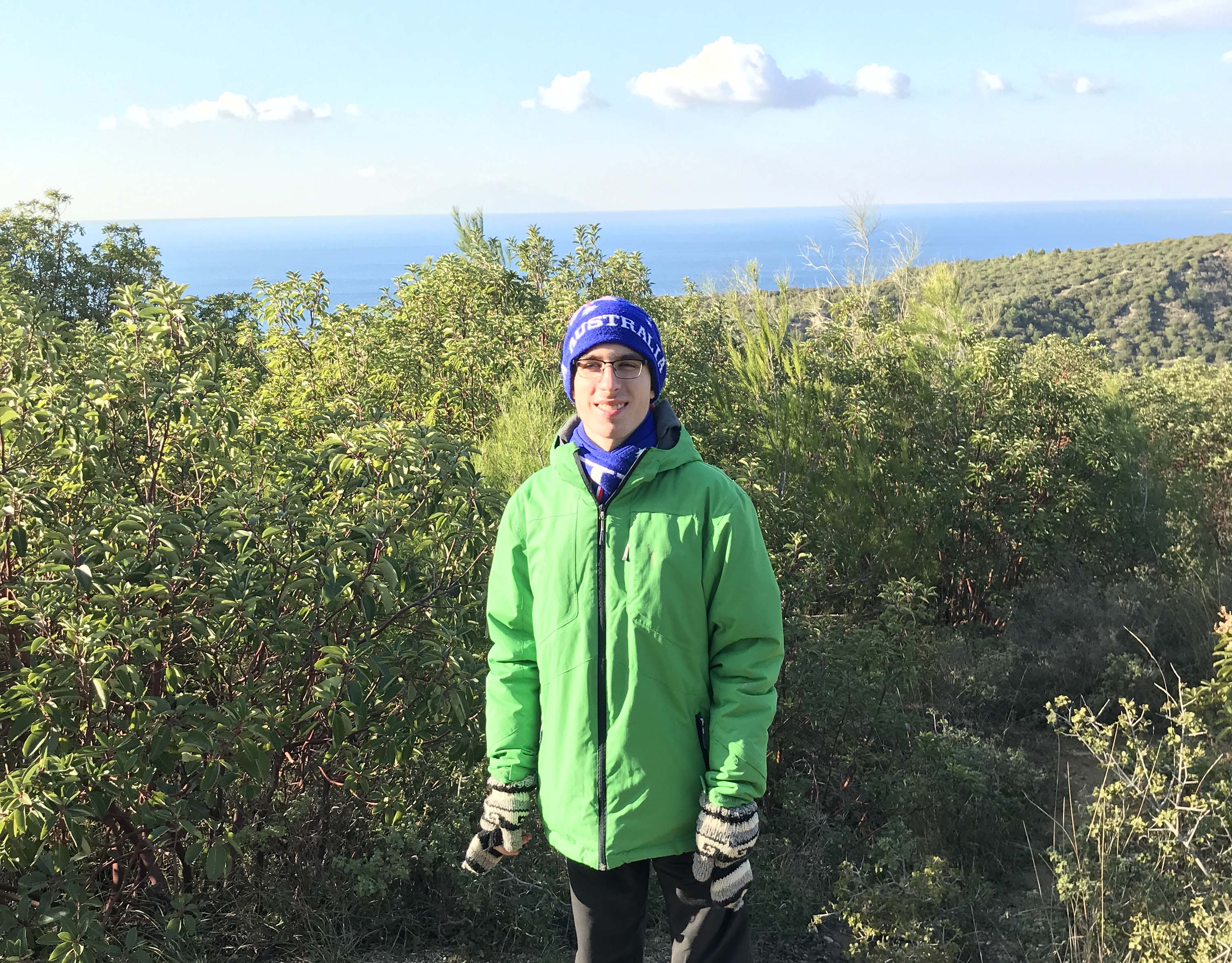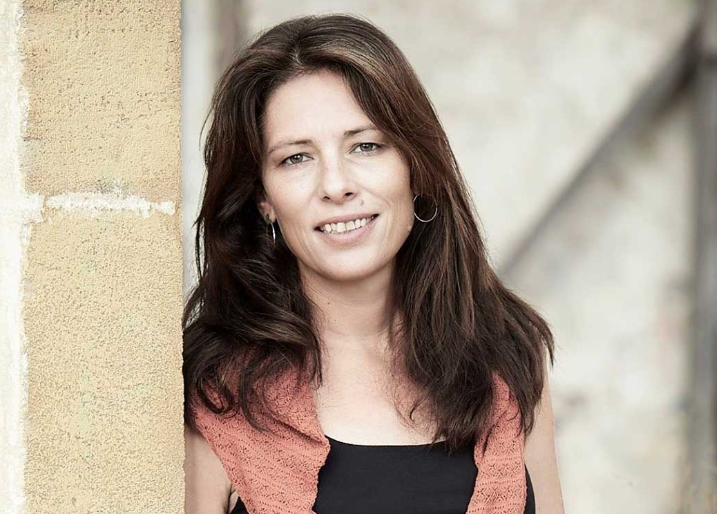A man behind a podcast to give those excluded a voice was largely encouraged to do so by a stranger in Cyprus
Everywhere in the world, two to three babies out of every 1,000 live births will be born with cerebral palsy, described by the World Health Organisation as a complex motor disorder caused by irreversible brain lesions occurring before, during or shortly after birth.
Josh Downey was born three months prematurely in Sydney, Australia and at the age of two was diagnosed with cerebral palsy, which affects the left side of his body. Now 24, and although he has never been to Cyprus, the island and its people have acted as a beacon of hope in his life’s journey. Having launched his own podcast entitled JD Dragon Disability Rights in November 2019, that quickly went viral, Josh has more recently begun to invite guests from Cyprus onto his podcast, an initiative that enables him to share his own experience, address all sorts of matters about disabilities but more importantly get to know Cyprus better so that he can one day make it his home.
“My cerebral palsy has affected me in a number of ways, including the need to wear a leg brace on my left leg to help strengthen my muscles,” he says. “I initially needed a ventilator to help me breathe as my lungs didn’t work properly at the time of my birth. Doctors told my parents that I shouldn’t even be alive and that if I did somehow survive, I wouldn’t be able to walk, talk or do pretty much anything. I had to communicate via sign language for the first few years of my life,” he adds.
Cerebral palsy’s most evident sign is its movement disorder. Yet as WHO explains, the movement disorder does not always represent the most important aspect of the disease, and above all, it cannot entirely account for the disability of a child affected by it. Paralysis for a child with cerebral palsy is not just a problem of movement and perception, but above all a paralysis of intention, interest and participation. Rehabilitation cannot be limited to education of movement and perception but must be directed towards promoting a balanced interaction between the individual and his or her physical and social environment.
To achieve this, two conditions are essential. On the one hand, the child must become aware of his or her own needs and desires and be determined to fulfil them. On the other, a sensitive and informed community needs to be capable of accepting and appreciating the diversity of ways in which the child copes with the environment and seeks to express his or her own individuality, it says.
“I never really attended inclusive schools and the small amount of brain damage caused by my disability made subjects like maths and science difficult. However, subjects like history, geography, politics and languages were what I excelled in,” explains Josh. “Making friends proved to be a struggle and I was bullied often”.
In 2013, aged 13, Josh faced a major change. His family moved from Australia to Switzerland. “It was here that I attended the International School Basel as one of their first students with a disability. By virtue of being the eldest student in their Intensive Needs Class, the programme was expanded throughout the school,” explains Josh.

“But in early 2016 my mental health took a sharp downturn. I developed romantic feelings for a girl in my class which didn’t go down too well as wires got crossed and it was quite clear that I didn’t exactly know how to express my feelings. I didn’t have any experience in romantic relationships before; my only exposure to them came from shows like Friends and The Big Bang Theory. To me these shows were a more accurate depiction of real life,” says Josh. “They depicted socially awkward people navigating what looked like everyday social situations which I empathised with.”
The physical challenges he faced also became a struggle. “I was also bullied about how my cerebral palsy affected the way I walk; people described my walk as feminine and came to the conclusion that I must be LGBT even though I’m not. It got to a point where I attempted to take my own life, but with the help of my psychiatrist and prescribed antidepressants, I got over it.”
It was during this turbulent period, as Josh describes it, that he met and made friends with a lady from Limassol, a friendship that still lasts until today and which has encouraged Josh to rebuild his stance and create his online platform to share his disability.
“For a school project, I made a series of videos focusing on cerebral palsy for interested students, parents and teachers. One of the students who took an interest was a young woman from Cyprus named Danae… and the person who would become my best friend. She stood by me when hardly anyone else would and helped me during my darkest moments. She’s one of the main reasonsI’m so invested in sharing my story, she was my biggest source of inspiration. Danae and I keep in touch almost every day and I’m in frequent contact with her parents who are massive fans of what I do,” says Josh.
The creation of his podcast was another avenue to talk about how people with disabilities around the world empower themselves and their communities, disability law and how disability can unite a diverse global community. “My podcast came as a result of me raising my hand in class and asking my politics teacher: ‘We’ve been talking about human rights for a while now, are we going to talk about the Committee on the Rights of Persons with Disabilities (CRPD) and disability rights?’ He responded with: ‘Why don’t you do something about that?’
“I launched the podcast in November 2019 The first six episodes were produced as part of a school project focusing on disability. The podcast quickly went viral in both Switzerland and the rest of the world shortly afterwards. Early on I interviewed Danae and her parents and that would have been the show’s finale, however by this point both my heart and the world wanted me to keep going.
“I feel like my podcast has helped me connect with people who can empathise with what I’ve been through. I also feel it has helped to give a voice to people with disabilities and created a safe space where I can feel comfortable and understood. It has also shown me that no matter who you are or where you’re from, there are others out there who can empathise with your struggles and that you’re never alone,” adds Josh.

“For me disability is a universal language for peace, tolerance and respect. I was once asked by one of teachers if I would’ve flourished better in an inclusive school and I disagreed. I personally feel that all schools, legislative assemblies and all aspects of society can become inclusive if we have the mindset and have the right people in charge. People with disabilities can offer new, fresh perspectives on global issues and become the peacemakers of tomorrow because anyone can beat a disability, even from just getting out of bed and starting their day.”
To date, Josh has hosted a young man with diabetes from Nicosia as well as lawyer and MP Costis Efstathiou, an advocate for people with disabilities. “I’m interested in people from Cyprus due to Danae as well as my passion for the country’s history, culture and lifestyle. Cyprus has everything I’m looking for in a country, from a warm, Mediterranean climate that encourages outdoor activities year round, to friendly locals, to ancient ruins. It has everything I could’ve dreamed of!
“I deal with my cerebral palsy by stretching, swimming, walking and doing yoga and pilates. I don’t wear braces as much as I used to. It’s one of the reasons I would love to move to Cyprus so I can spend more time outside,” he adds.
His interviews focusing on disability in Cyprus have shown him that disability can play a large role in making the island an inclusive society and a bastion of peace and tolerance. “I’d love to bear witness to this inclusive future. Cyprus is where I’d love to raise a family. It has the potential to demonstrate tolerance and understanding regardless of ethnicity or languages spoken. I feel that it doesn’t matter what your background is, we can work together to bring about a better society.
“I’ve received positive feedback about my podcast from groups like the Cyprus Disability Support Group. I’m hoping to interview President Nikos Christodoulides about how his office has supported initiatives designed to support people with disabilities in Cyprus.”
You can find JD Dragon Disability Rights on Spotify and other platforms






Click here to change your cookie preferences